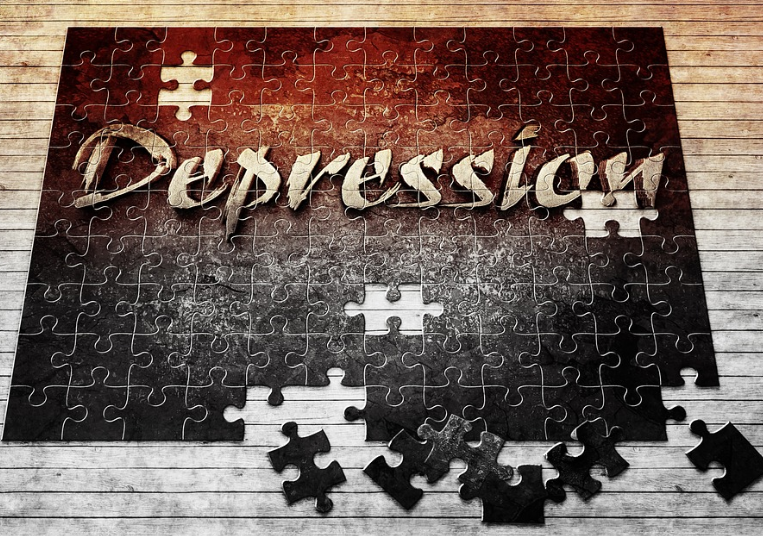Meditation Is Not for Everyone
It’s critical to accept that meditation isn’t for everyone and to not judge yourself when your mind wanders.

Selfpause Affirmation App
Download the app to get 1,000’s of affirmation meditations and everything you need to write, record and listen to your own.
Whether or not you are able to meditate depends on how much effort you want to put into it. Younger people may have trouble with it because they are used to being distracted. After all, there’s plenty of entertainment available around us. In addition, many people’s minds are somewhat addicted to distraction. Therefore, it can be hard to sit still for long periods of time. However, it’s important to accept that meditation is not for everyone and not judge yourself when your mind starts to wander.
Meditation is not a quick fix

One of the most common reasons to practice meditation is to reduce stress. Stress can have numerous negative effects on your health. By practicing meditation, you can learn to recognize and control your thoughts and emotions. While meditation is not a quick fix for everyone, it can help you deal with stressful situations in your life.
Some people use meditation as a way to escape from their problems. However, most people don’t use it to do so. Instead, they use it as a way to become more self-aware and aware of their internal resources. Meditation helps you look at your problems with a clearer mind, which can be an antidote to anxiety and stress.
The benefits of meditation can be felt immediately or over a period of time. It is important to be consistent with your practice so that you get the most benefits. It is important to commit to a daily session of meditation for at least 15 minutes to see results. If you find yourself feeling overwhelmed or burned out during a meditation session, you may need to modify your practice. You may need to try a different time, location, or position to see if it improves your meditation time.
It requires effort

Meditation is a subtle process that requires effort. Just like anything else in life, effort is necessary to bring about a change. Without effort, things will remain as they are and return to their natural state. This is known as the law of inertia. Meditation requires effort to bring about change, but not the kind of effort that leads to frustration.
While we may be tempted to dismiss the need for effort in order to achieve change, there is no such thing as the perfect meditation experience. Meditation is a state of being in the present moment, with reality. In order to meditate effectively, we must allow our minds to be in the present moment. Oftentimes, the mind will wander to irrelevant thoughts or things that are not important.
Some people mistake meditation for relaxation, and some of them may even mistake the process for passive observation. In truth, meditation is a deliberate display of our will over our physical body and our minds. This is what makes it so difficult to achieve. The true meditator is focused and attentive.
It causes hallucinations

Meditation causes hallucinations for many reasons. One theory is that the meditator’s brain becomes oversensitive when the sensory input is reduced. Researchers are examining this issue now in an effort to understand the nature of hallucinations and their connection to meditation. Jared Lindahl, a researcher at Warren Wilson College in Asheville, North Carolina, is one such researcher. He and his team have been studying the phenomenon for years. They are now comparing the descriptions of meditation patients with those of people who were subjected to sensory deprivation.
Research has suggested that meditation may trigger hallucinations by rewiring the major areas of the brain. This can include auditory, somatosensory, and hypnagogic hallucinations. While these effects are common among some meditators, not everyone experiences them. There is still a need for more research to better understand the effect of meditation on the brain.
In order to overcome hallucinations caused by meditation, one should avoid closing his or her eyes completely. In addition, one must not pay attention to the hallucinations. These experiences should naturally dissipate.
It can cause a lack of motivation

Lack of motivation is a common symptom of depression, but it can also be a symptom of anxiety or other mental illnesses. If you feel that your motivation is low, you should first seek professional help to rule out any underlying health issues. Many people suffer from this problem and can successfully get help for it. Sometimes, a lack of motivation is caused by a fear of what other people will think, or the need to please everyone. If you’re not sure what the cause of your lack of motivation is, you should consider consulting with a psychologist or psychiatrist.
In addition to reducing stress and worries, meditation can also reduce your motivation. It has been proven that meditation can improve your task focus, but it can be counterproductive to your motivation.
It’s not a religion

Although meditation is often associated with Eastern religions, the practice is not religious in itself. In fact, it dates back as far as 5,000 years, to the time of the Buddha. Religion is a set of beliefs, usually involving a supreme being. While there are no deities in meditation, it does involve devotion to a higher power.
As a practice, meditation can help people know themselves better, control their minds, and gain insight into themselves. Therefore, it is a good idea not to condemn people who practice meditation for being blind. This practice can also help them to face problems, as it takes them deeper and provides them with resources to meet them. However, dogmatic religious practices like to promote fear and stigma about meditation.
Western meditation practices can help you clear your mind and rise above daily irritations. However, the goal of Western meditation is not nirvana or enlightenment. Western meditative practices were first practiced by Christians in the Middle Ages. Christianity’s use of meditative methods dates back to the fourth century. However, Jewish meditation practices are even older. Jewish mysticism, known as Merkavah-Heichalot, seeks to elevate the soul through meditative means.
It’s not a spiritual practice

There are different types of meditation. Some focus on the breath, while others focus on sounds or a mantra. The goal of meditation is to calm the mind and let go of the thoughts that occupy it. While meditation may not be for everyone, it can be beneficial for those who are looking to achieve a higher state of consciousness.
While meditation originated in religious contexts, most of the techniques and benefits of meditation are not religious in nature. Those interested in improving their health, relaxation, or self-concept can practice meditation without a belief system. Similarly, people of any faith can practice meditation without conflict.
Traditional forms of meditation are aimed at helping people connect with their spiritual selves. The most common types of meditation are based on sitting and being still. Although these forms of meditation are highly popular, they are not for everyone. For example, music playing next door can be distracting. To overcome this problem, one should try to focus on something else, rather than on the music. Then, the music will fade away.
It’s not a quick fix

While meditation may be a good idea for some people, it’s important to keep in mind that it’s not a quick fix for everyone. Just like any other skill, practicing meditation requires a period of practice. And it can be a challenging process. It’s important to set aside the romantic image that you might have about it.
For those who are unsure of where to start, it’s recommended to try two or three short meditation sessions each day. This will help boost your daytime mindfulness and help you relax at night. Even a three-minute session during lunch can benefit you. In general, most people find it easier to form a meditation habit if they keep it to a regular schedule. It’s helpful to practice it in a specific place at the same time every day.
Although meditation is an excellent tool to reduce stress and anxiety, it isn’t a “quick fix.” It takes practice, patience, and consistency. If you feel burnt out after a few days or weeks of meditation, try modifying your routine. Try a new position, or change the time or location.
It’s not a quick fix for trauma survivors

Though meditation can be helpful for people suffering from a variety of conditions, there is no quick fix for trauma. People need to take it gradually and with caution. Those who are trauma survivors should not go it alone; they should seek the help of a trained therapist who can guide them through the process.
To begin with, choose a place that is calm and free of distractions. You can practice meditation in a quiet room, at home, or on campus, but try to stay away from busy, crowded spaces. You may be afraid to close your eyes in public because it could bring back painful memories.
For trauma survivors, meditation can be helpful for processing their experiences. It can increase their awareness, help them regulate their emotions, and increase self-compassion. Practicing meditation can also help them learn new coping skills and cope with difficult situations.
Our Top FAQ's
Meditation is generally considered to be a safe and beneficial practice, but like any activity, it may not be suitable for everyone. Some individuals may find that meditation causes them to feel anxious, restless, or agitated, or that it triggers unwanted thoughts or emotions. In some cases, meditation may even exacerbate existing mental health conditions, such as anxiety or depression. It’s important to consult with a healthcare provider or mental health professional before beginning any new practice, including meditation, to ensure that it is safe and appropriate for you.
There is no specific group of people for whom meditation is inherently unsuitable or inadvisable. As with any activity, meditation may not be appropriate for some individuals based on their unique circumstances, such as their physical or mental health. It’s important to consult with a healthcare provider or mental health professional before beginning any new practice, including meditation, to ensure that it is safe and appropriate for you.
If meditation is not suitable or beneficial for an individual, there are many other practices and activities that may help them to relax, reduce stress, and improve their mental and physical health. Some alternatives to meditation include:
- Exercise: Regular physical activity, such as walking, running, swimming, or yoga, can help to reduce stress and improve overall health.
- Deep breathing: Focusing on deep, slow breaths can help to calm the mind and relax the body.
- Progressive muscle relaxation: Tensing and releasing different muscle groups can help to reduce tension and promote relaxation.
- Guided imagery: Imagining a peaceful, relaxing scene can help to calm the mind and reduce stress.
- Mindfulness: Focusing on the present moment and accepting thoughts and emotions without judgment can help to reduce stress and improve overall well-being.
Meditation is generally considered to be a safe and beneficial practice, but like any activity, it may not be suitable for everyone. In some cases, meditation may exacerbate existing mental health conditions, such as anxiety or depression. It’s important to consult with a healthcare provider or mental health professional before beginning any new practice, including meditation, to ensure that it is safe and appropriate for you.
If an individual experiences negative effects or discomfort while practicing meditation, it may not be suitable for them. In such cases, it’s important to consult with a healthcare provider or mental health professional to determine the underlying cause and to explore alternative practices or activities that may be more suitable.
